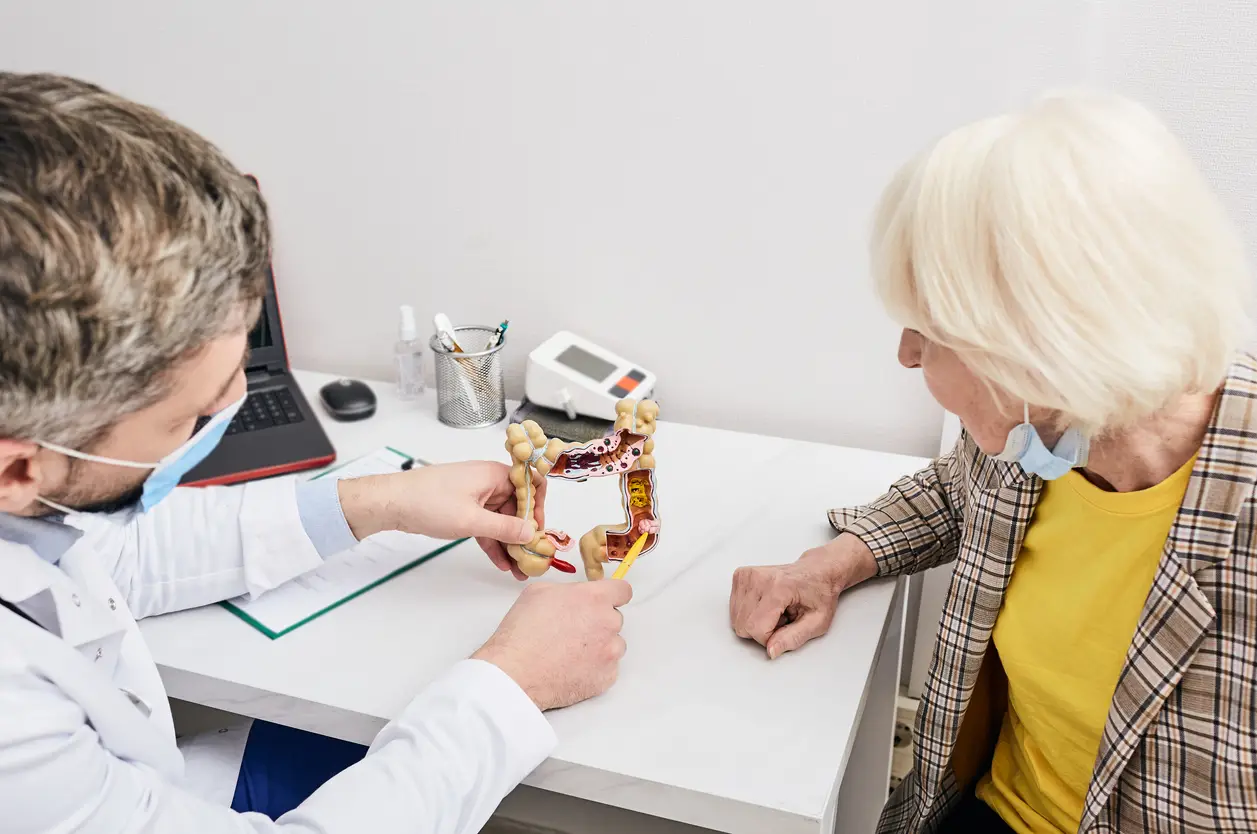Colon cancer is the second highest cancer killer in the United States. But it is the most preventable cancer if diagnosed early. Colon cancer awareness saves lives, wipes away stigma, and encourages preventive care. Colon cancer remains a disease that only affects older adults to most. However, during colon cancer awareness month, with today’s technology, more and more cases are being put forth in younger adults. It was just cumulating on the necessity for early screening of precancerous colon cancer. It is not very painful and not as hard if dealt with at an early stage with tests for colon cancer symptoms.
What are the Risk Factors of Colon Cancer?
Risk factors of colon cancer vary with individuals. Some of the risk factors are controllable while others are not. Awareness of the most common risk factors leads individuals to take preventive steps.
Dietary risk factors consist of high-red-meat and low-fiber diets. Risk is also brought about by smoking tobacco, heavy alcohol use, overweight, and obesity. Inflammatory bowel disease from Crohn’s disease and ulcerative colitis also increases the risk.
There are also genetic and familial risk factors. People with a first-degree relative or family member with colon cancer are at higher risk.
How Often Should you be Screened?
Screening for Los Angeles colon cancer typically begins at age 45 for those of average risk. However, if you are at risk based on risk factors or family history, your doctor can have you screened earlier.
There are many different types of screening tests. The most popular is a colonoscopy, but it’s also one in which doctors not only can diagnose polyps, but also have them removed at the time of the colon cancer shield test. There are tests that you do in your stool, like FIT or Cologuard. Talk to your doctor about deciding which test is best for you.
How Can you Reduce your Risk?
You can lower your risk of colon cancer by a great deal by making some alterations in your lifestyle. Your healthy colon can be achieved by a healthy diet consisting of fruits, vegetables, and whole grains. Red and processed meat must be consumed in small quantities.
Even physical activity can help. Taking a daily 30-minute brisk walk as a form of regular exercise is healthy for the digestive system. Stopping smoking and avoiding too much alcohol is also something one must do.
Yet for high risk, there can be a slippery procedure and drug that will work. There is hope with aspirin but not for everyone. Consult your doctor before starting a prevention schedule.
What are Colon Cancer Warning Signs?

There are no early symptoms of colon cancer or very slight ones, and thus screening is well worth trying. But some cannot be overlooked.
Warning signs are:
- Bowel habits: Diarrhea, constipation, or a change in stool width for more than a few days.
- Stool blood: Red or very dark-appearing stool blood can suggest colon bleeding.
- Abdominal discomfort: Cramping abdominal, gaseous, painful, or cramping, long-standing or chronically worsening.
- Unexplained weight loss: Unexplained weight loss in an individual is one of the other presentations that can be expressed by most of the cancers, including colon cancer.
- Fatigue or weakness: Progressive or recurrent fatigue or weakness despite sufficient rest is one of the presentations of bleeding within the body.
Get a health care provider right away if you experience these symptoms.
In whom does Colon Cancer most Commonly Develop?
Colon cancer develops in men and women and crosses racial and ethnic lines. Black Americans and Ashkenazi Jews are at increased risk and present later.
Individuals under 50 years of age are also witnessing all-time high diagnosis rates. They are also being overlooked since it is believed to be cancer of older people. Diagnosis at a later age means conditions are more complex.
Raising awareness to bring more people into consideration about disparities and fair access to screening is a wide role to pay respects towards colon cancer awareness month.
How do you Care for a Person with Colon Cancer?
It is overwhelming to watch someone you love who has colon cancer painfully. The small things, the emotional support, and the help with day-to-day tasks can take a toll on the caretaker.
Listen to them without judging and allow them to say what they want. Drive them to treatment or for dinner. Drive them to a meeting in your car if they would appreciate the ride. Be careful not to stifle their desire for contact and for solitude.
Other groups also provide information and support groups. In-person or computer meetings, so one can speak with someone who knows what it is, can be uplifting.
How do Survivors Recognize a Link with Awareness?
Survivors of colon cancer are agents of change. They encourage others to be tested, make lifestyle changes, and beat cancer with treatment.
Survivors will also deliver speeches during awareness campaigns, walk, or lead advocacy movements. They demonstrate that it is not only about surviving but living with colon cancer.
Other survivors also help raise awareness of less severe symptoms and end digestive health stigma. Lives are saved through their stories.
Runs, walks, classes, and fund-raisers are the norm for most communities. They fund research, screen, and take care of patients and families.
What does the Future Hold for Treating Colon Cancer?

There is more promising hope on the horizon with better treatment of colon cancer. One can now personalize the treatment with precision medicine. Targeted therapy and immunotherapy are now being utilized to treat advanced cancer.
Researchers are even creating better screening technology, even non-invasive technology. Machine learning is also becoming more adept at detecting polyps on colonoscopies.
Clinical trials also allow a patient to receive to attempt new treatments. Being a participant helps get something on science underway and can offer an answer when treatment isn’t meant to be effective.
What Can you do Today?
Begin by discussing colon cancer causes. Ask your family and friends if they have been screened. Post facts on social media. Contribute to organizations funding research into colon cancer and patient care.
If screening is available to you, don’t hesitate. Urge your employer to emphasize preventive health care. Treat those already living with the disease to acts of kindness and understanding. Every effort, no matter how minimal, shifts the dial.
Conclusion
Let us keep in our hearts those loved ones we have lost, be an inspiration for those who still suffer, and work toward that day when colon cancer has a much lower mortality rate. It’s through action, awareness, moments like colon cancer awareness month and compassion that lives will be saved and dignity to human resolve brought.




